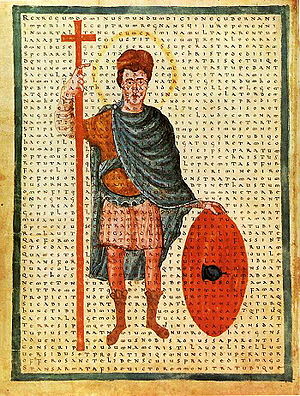
Back توالي الإمبراطورية الرومانية Arabic جانشینی امپراتوری روم Persian יורשות רומא HE Suksesi Kekaisaran Romawi ID Successione dell'Impero romano Italian Сукцесија Римског царства Serbian

The continuation, succession, and revival of the Roman Empire is a running theme of the history of Europe and the Mediterranean Basin. It reflects the lasting memories of power, prestige, and unity associated with the Roman Empire.
Several polities have claimed immediate continuity with the Roman Empire, using its name or a variation thereof as their own exclusive or non-exclusive self-description. As centuries went by and more political ruptures occurred, the idea of institutional continuity became increasingly debatable. The most enduring and significant claimants of continuation of the Roman Empire have been, in the East, the Ottoman Empire and Russian Empire, which both claimed succession of the Byzantine Empire after 1453; and in the West, the Holy Roman Empire from 800 to 1806.
Separately from claims of continuation, the view that the Empire had ended has led to various attempts to revive it or appropriate its legacy, notably in the case of Orthodox Russia. The vocabulary of a "Third Rome", the "First Rome" being Rome in Italy and the "Second Rome" being Constantinople in the Byzantine Empire, has been used to convey such assertions of legitimate succession.
© MMXXIII Rich X Search. We shall prevail. All rights reserved. Rich X Search